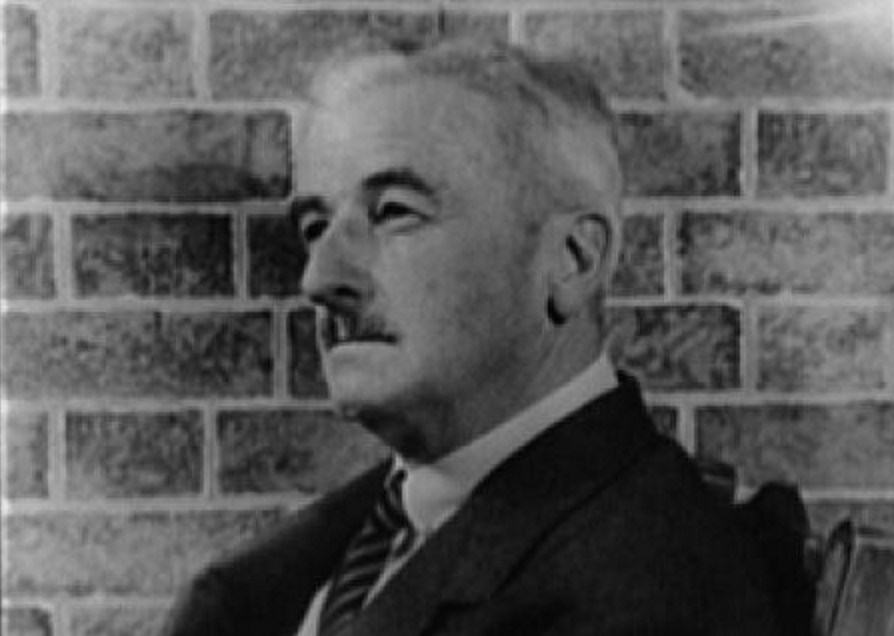Early Days
William Faulkner was born William Cuthbert Falkner (he later added the “u”) was the oldest of four boys born in New Albany, Miss., to Murry and Maud Butler Falkner on Sept. 25, 1897. He was named after his great-grandfather, William Clark Falkner, who was killed in a duel. After his grandfather sold the railroad where his father worked, Falkner’s family moved to Oxford, Miss. Murry, well respected but a “mean drunk,” according to The Boston Globe, failed at several ventures before establishing a livery stable.
As a child, Billy loved to read, and began writing his own poems and short stories in the fourth grade. Oxford was a town teeming with storytellers, including his grandmother, farmers idling outside the town store and men discussing cases outside the courthouse. Callie Barr, his family’s black nurse and a former slave, also told him stories. Barr would one day help raise Faulkner’s own daughter.
In high school, he took no interest in academics but enjoyed playing football and reading. Around this time he met Phil Stone, a lawyer and poet who was four years older than Faulkner. Stone introduced him to the work of John Keats, Sherwood Anderson and the Imagist poets.
Faulkner quit school in 11th grade. He tried to enlist in the United States Army but was refused because he didn’t meet height requirements. He spent his time courting Estelle Oldham, who was engaged but talked about eloping with him instead. In 1918, persuaded by her parents, Oldham married Cornell Franklin, a law student. Distraught, Faulkner went to Connecticut to live with his old friend Stone.
Notable Accomplishments
Recognition for Faulkner came slowly. He published his first novel, “Soldier’s Pay,” in 1926. “The Sound and the Fury,” one of his best-loved books today, sold only 3,000 copies in the 15 years after its publication, according to the University of Michigan.
Although “The Sound and the Fury,” was a book that Faulkner himself called his favorite; most critics claim his best work and perhaps the best American novel is “Absalom, Absalom.”
After its publication in 1936, a reviewer for the Macon Telegraph wrote, “Essentially this is the familiar tale of the rise and fall of a Southern planter. Yet Mr. Faulkner has invested it with a freshness and new beauty by his heady style, … no less than by his keen insight into human motives,” as reported by the University of Virginia.
Asked by The Paris Review in his ‘Art of Fiction’ interview in 1956 whether there could be a formula to describe a great novelist, Faulkner responded, “Ninety-nine percent talent … ninety-nine percent discipline … ninety-nine percent work. He must never be satisfied with what he does. It never is as good as it can be done. Always dream and shoot higher than you know you can do. Don’t bother just to be better than your contemporaries or predecessors. Try to be better than yourself.”
In 1939, Faulkner was accepted into the National Institute of Arts and Letters, but by 1944 most of his work was out of print. For his income, he continued to rely on screenplays and short stories, selling some for $1,000 a piece, and others for as little as $25.
In 1949, Faulkner went from a middling writer admired in some circles to an international sensation when he was awarded the Nobel Prize.
In his acceptance speech, Faulkner addressed struggling artists. “The Cambridge Introduction to William Faulkner” quotes him as saying, “I believe that man will not only endure: he will prevail. He is immortal, not because he alone among creatures has an inexhaustible voice, but because he has a soul, a spirit capable of compassion and sacrifice and endurance.”
Faulkner died on July 6, 1962, of a heart attack at Wright’s Sanitarium in Byhalia, Miss. The proud but reclusive author, despised for a time by his neighbors, neglected by the general public for most of his life, was at his death “widely considered the most important American novelist of his generation and arguably of the entire 20th century,” according to Jay Watson in Mississippi History Now.
Since Faulkner’s death, more books and essays have been written about him than any other American writer.











